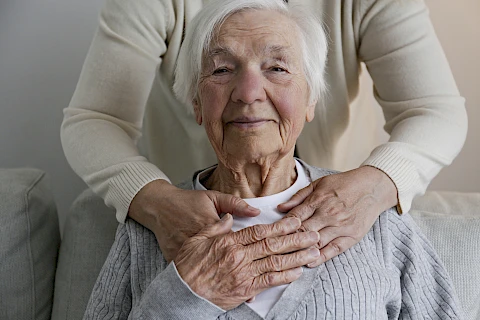
When an elderly loved one is possibly living with a neurological condition that can disrupt everyday life, it warrants early detection and diagnosis. In such cases, senior Alzheimer's medical intervention can significantly improve the quality of life and slow disease progression. Here, we have further insight into the risks and signs of seeking a doctor's opinion.
Understanding Risk Factors of Dementia
Major neurocognitive disorders have several risk factors that are important to be acquainted with. These risk factorsrange from things outside your control, like age and genetics, to lifestyle factors, like high blood pressure or diabetes. Being aware of these increased risks can help you identify the potential onset of major neurocognitive disorders in your elderly loved ones.
Senior Alzheimer’s Medical Intervention: Signs to Consider
If you've noticed these signs in yourself or an elderly loved one, it may be time to consult your care provider about what might be causing your symptoms.
1. Disruptive Memory Loss
One of the most common signs is memory loss, which disrupts daily life. This is more than forgetting where you placed your keys; it is potentially forgetting recently learned information or important dates or events. When recollection slips become frequent and start affecting everyday life, consider it a potential warning sign.
2. Difficulty Completing Common Tasks
Another sign is the difficulty in completing familiar tasks at home or work. We're talking about tasks they've been doing for years, maybe even decades. If your loved one struggles with once routine tasks, like working appliances or driving to familiar places, it may signal a problem.
3. Confusion
Confusion with time or place is also noticeable as they lose track of dates, seasons, and the passage of time. They may even forget where they are or how they got there. These episodes of confusion, even if they occur in spurts, should be taken seriously.
4. Visual/Spatial Difficulties
People with cognitive decline may also have trouble understanding visual images and spatial relationships. Difficulty reading, judging distance, or determining color can be an indication. Similarly, new problems with words in speaking or writing can also be a flag. They might struggle with vocabulary, have trouble following or joining a conversation, or repetitively use the exact phrases.
5. Misplaced Items
The disease can also lead to misplacing things and an inability to retrace steps. They may put things in unusual places or accuse others of stealing, which can increase over time. Decreased or poor judgment may be evident, such as when dealing with money or paying less attention to grooming.
6. Social Withdrawal
Withdrawal from work or interacting with others is another sign to be aware of. A person with a major neurocognitive disorder may retreat from hobbies, social activities, work projects, or sports. These changes in mood and personality can be indicative of the condition. They can become confused, suspicious, depressed, fearful, or anxious.
In-Home Carers Can Help Note Manifestations
As a caregiver, your role in noticing the telltale signs helps by communicating changes to a medical professional. Early senior alzheimer's medical intervention can make a significant difference in its progression and management. If you're in the Sacramento area, Senior Helpers East Sacramento offers Alzheimer's and Dementia Care Services that can help those with neurocognitive disorder live a more independent, fulfilling life. Contact us today to learn more.